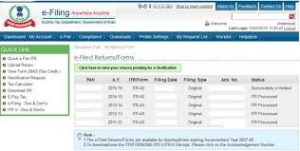 The Minimum Alternate Tax (MAT) could be phased out after some years, if and when all corporate tax exemptions and deductions are phased out.
The Minimum Alternate Tax (MAT) could be phased out after some years, if and when all corporate tax exemptions and deductions are phased out.
This could take at least seven or eight years. If it happens, experts agree, it would reduce tax litigation.
A finance ministry official said MAT might become redundant in seven years or more and could be removed. “For now, it will remain in the Income Tax Act, even if it does not affect people. If there are no substantial deductions that reduce the income to below 18.5 per cent, MAT will not be applicable. In seven to 10 years, as MAT becomes redundant, it will be removed,” he said.
| MAT THROUGH THE YEARS |
- 1987-88: Rajiv Gandhi introduces Section 115J in I-T Act to tax zero tax companies at at least 15% of book profits
- 1990-91: Madhu Dhandvate Abolishes it
- 1996-97: P Chidambaram re-introduces section 115 JA. MAT rate at 12.5% of total book profit.
- 2000-01: Yashwant Sinha amends and makes it 115 JB. Rate at 7.5%. Continues even today. Simplifies rules
- 2006-07: 7.5%, but long capital gains taken into account to compute book profit
- 2009-10: 10%
- 2010-11: 15%
- 2011-12: 18%
- 2012-13: 18.5%
- 2013-14: 18.5%
- 2014-15: 18.5%
- 2015-16: 18.5%
|
The government is also looking at setting a sunset date for most open-ended tax concession schemes, alongside a five percentage point reduction in the corporate tax rate in four years. The rate is 30 per cent, but is close to 23 per cent, on account of a large number of exemptions and deductions. The revenue forgone in 2012-13 on account of deductions in this regard was Rs 68,000 crore.
In the next financial year, the corporate tax rate might be around 29 per cent, after a cut, part of a plan to align Indian taxation levels to global standards. “As the government progressively reduces the rate to 25 per cent and phases out exemptions and deductions, the need  for MAT goes away. It will simplify a lot of things,” said Sudhir Kapadia, national tax leader, EY.
for MAT goes away. It will simplify a lot of things,” said Sudhir Kapadia, national tax leader, EY.
The finance ministry will issue a discussion paper on phasing out the exemptions and deductions. It is likely to announce the road map in the Budget.
MAT is levied at 18.5 per cent and was meant for large companies that showed book profits but took advantage of legal provisions to avoid paying corporate tax, via dividend payments and other legal deductions to stated income. As of now, 38 corporate tax deductions apply to industry, including benefits for units set up in Special Economic Zones (SEZs), the northeast states, hilly states and so on. Besides, tax incentives are offered for expenditure on scientific research, funding charitable trusts and institutions and the like. Deductions are also offered to sectors such as power, telecommunications, and infrastructure.
“As the corporate tax rate is reduced to 25 per cent, MAT will also not make sense, as the two rates anyway come close,” said Rajesh H Gandhi, partner, Deloitte Haskin and Sells.
Rahul Garg, leader, direct taxes, PwC, said the government should look at replacing corporate tax with MAT. The effective corporate tax was 23.4 per cent, he explained, while that of MAT was close to 22 per cent. “If the government simply increases the MAT rate by one percentage point, collections will go up. With this, the government could get rid of all disputes,” he said.
SEZs lost sheen after then finance minister Pranab Mukherjee in 2011-12 imposed MAT on the book profits of these developers and units inside one.
That and a dividend distribution tax of 10 per cent made these enclaves unattractive. Only 192 of the 388 notified SEZs are operational, meaning at least one functional export unit. There are 588 approved SEZs.
Exports from SEZs fell 7.6 per cent in 2014-15. The department of commerce has been pressing the finance ministry for the withdrawal of MAT but the latter has not obliged. The Budget for 2015-16 has exempted foreign portfolio investment from MAT and the government has also accepted the A P Shah panel recommendation to do away with past cases of MAT on foreign institutional investors. A change to the law is on its way, while tax officials have been instructed not to pursue notices, issued against foreign instituional investors. However, applicability of MAT on foreign companies without permanent establishment remains. A case relating to this involving Castleton Investments is pending in the Supreme Court.
 The income tax department has signed 16 advance pricing agreements (APAs) with multinational companies (MNCs) so far, exempting their transactions with local units from rigorous tax audits.
The income tax department has signed 16 advance pricing agreements (APAs) with multinational companies (MNCs) so far, exempting their transactions with local units from rigorous tax audits.





